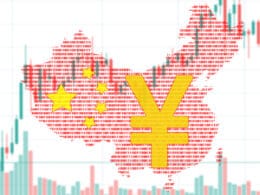Since Bitcoin’s inception in early 2009, the crypto wave has seen increased popularity among individual and institutional investors alike. What’s more, it has also grown to include more than 10,000 cryptocurrencies and numerous other digital assets based on blockchain technology. With this wave threatening to overshadow mainstream finance, there is a growing concern among governments and regulators to step in to ensure investor protection, as well as the continued stability of the financial system.
2021: The year of crypto
The year 2021 has been a rollercoaster of a year in the crypto space. This was the year that saw the world of art meet blockchain to give birth to non-fungible tokens (NFTs). These NFTs have brought out a way to take ownership of digital art, just like holding a canvas painting by Edgar Degas would confer its ownership to you. These NFTs have created quite the headlines as several of them have gone on to sell at auctions for millions of dollars. A recent one went for a whopping $17.1 million at Sotheby’s. What’s more, NFTs have grown to include other digital properties such as digital real estate.
This was also the year that saw several institutions embrace cryptocurrencies as a means of payment. Earlier in the year, Tesla CEO and billionaire Elon Musk accepted Bitcoin payments for Tesla merchandise. He soon recanted his stance in favor of a less popular coin, Dogecoin, but the effect of this move reverberated across the world. Nowadays, companies like Expedia and Microsoft are accepting Bitcoin payments.
In September, El Salvador set the pace to become the first country to accept Bitcoin as legal tender. Though no other countries have followed suit, several remarkable institutions have opened their doors to the acceptance of crypto assets. The European Investment Bank (EIB), for example, issued a digital euro bond worth 100 million euro on the Ethereum blockchain. The SEC also approved the first BTC futures-based ETF, which began trading in October.
However, the year has not all been a bed of roses for crypto enthusiasts. There have been some significant scams that have made headlines for swindling investors hundreds of thousands, if not millions, in hard-earned capital. For instance, the Squid token, named after the popular Netflix show dubbed Squid Game, turned out to be a fraud, swindling investors of over $3 million. There was also the case of the Banksy NFT that sold for over 244,000 Sterling pounds, only to turn out to be a fake.
Regulation efforts from around the world
1. The United States
A recent survey by OneSpan found that 50% of top bank officials in the US are concerned by the cryptocurrency movement going into 2022. To that end, several regulatory bodies in the country are looking to provide clarity to rules governing such regulated institutions wishing to participate in this digital currency market. This is all in a bid to prevent money laundering through these digital assets, to prevent illicit activity, and to ultimately protect investors in the space.
Several federal bank agencies issued a statement in November detailing the policies they are looking to put in place come 2022. These policies include defining crypto terminology such as the distinction between digital assets and securities, identifying the risks involved in the trade as well as clarifying current regulations that apply to the crypto space. They also reviewed various crypto activities that banks could legally participate in, such as holding digital assets, facilitating the purchase and sale of these assets by their customers, using them as collateral for loans, and the utilization of stablecoins for payment.
President Biden also signed the infrastructure bill into law in November 2021, which outlined reporting requirements for any digital asset transactions exceeding $10,000. However, this law will not go into effect until 2024, when the IRS and the Treasury Department clearly define these digital assets.
2. India
India has taken a much more stringent approach to the regulation of crypto assets. They drafted a crypto regulation bill in 2021 which prohibits all private cryptocurrencies in the country. However, there are certain exceptions that have been outlined to promote the usage of these crypto coins within their borders. This is as industry leaders in the crypto space maintained that provisions leading to this ban have to be carefully scrutinized before it can be enforced.
The Indian Parliamentary Standing Committee, as well as their Prime Minister, have expressed their concerns about these coins falling into the wrong hands, thus calling for regulation.
3. South Africa
The main regulatory body in South Africa, the Financial Sector Conduct Authority (FSCA), is set to release new policies on the regulation of the crypto trade in the early months of 2022. These policies will define how digital assets will be traded in the country. In a statement, the commissioner to the FSCA said that the organization was not looking to legalize the trade of high-risk products.
The FSCA is also looking to examine the relationship between these digital assets and conventional finance in a bid to see whether the crypto wave threatens South Africa’s financial stability. As of the moment, these digital assets do not pose a threat to the financial sector, but the FSCA is hesitant to term them as currencies. Instead, they are viewed as assets.
Similar to India’s stance, the commissioner also advised investors in the country against private cryptocurrencies. In their stead, he advised them to embrace stablecoins issued by the central bank, as these promise more stability and reliability.
Conclusion
As the use and trade of digital assets continually gain traction, more institutions and banks are looking for ways to get in on this wave. This has attracted the attention of policymakers and regulators who are looking to prevent illegal activities as well as protect investors. Therefore, we expect to see further advances in crypto regulation from numerous countries across the globe come 2022.








